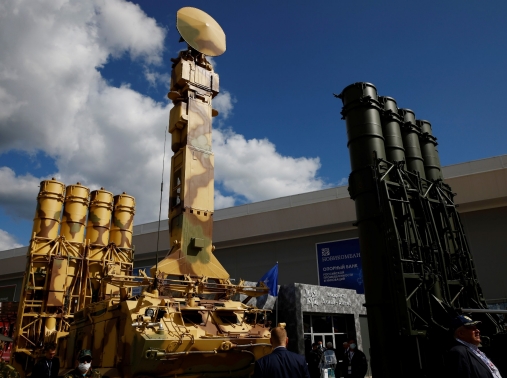|
|
RAND research and commentary on the issues that matter most
|
Nov 24, 2021
|
|
|
|
|
Photo by MC2 Stephen Oleksiak/U.S. Navy
|
|
|
|
Some analysts and policymakers argue that U.S. alliances and partnerships can risk dragging the United States into conflict to protect its reputation for upholding commitments. Others say that America can maintain these security relationships while keeping its own interests in mind and restraining allies and partners from engaging in risky behavior.
A new RAND report assesses the evidence for these competing claims. Findings show that “entanglement dynamics” have been factors in at least five military conflicts that involved the United States, including three wars.
However, entanglement dynamics were not the only cause of U.S. involvement in these past conflicts. And because so many questions about entanglement remain, the authors emphasize that more research is needed to better inform this debate. Read more »
|

|
|
Russian President Vladimir Putin attends an expanded meeting of the Russian Foreign Ministry Board in Moscow, November 18, 2021. Photo by Stanislav Krasilnikov/TASS via Reuters
|
|
Russian troops building up along the border with Ukraine may seem like a repeat of the past. So, too, does the U.S. response, says RAND's Samuel Charap. Rather than focusing solely on coercing Russia to de-escalate, the Biden administration could also consider pushing Ukraine to take steps toward implementing its obligations under the 2015 Minsk II peace deal. Ukrainian compliance with the agreement—flawed as it is—might reinvigorate the peace process, Charap says.
Read more »
|
|

|
|
Security personnel at the Wuhan Institute of Virology during the visit by a World Health Organization team, February 3, 2021. Photo by Thomas Peter/Reuters
|
|
Since the COVID-19 pandemic began, changing U.S. attitudes toward China have negatively affected scientific collaboration between the two countries. That's according to RAND's Jennifer Bouey. Mounting distrust undermines disease surveillance efforts, the exchange of students and scholars, and even health collaboration programs. Global leaders may be doing their citizens a disservice, Bouey says, if they allow “toxic geopolitics” to undercut partnerships that took decades to build.
Read more »
|
|

|
|
Taiwan Air Force personnel during exercises designed to prove the military's capabilities to repel a Chinese attack, Chang-Hua, Taiwan, May 28, 2019. Photo by Aventurier Patrick/ABACA via Reuters
|
|
Some experts believe that China could attack Taiwan in as little as six years. But there is no evidence that China is plotting a sneak attack, says RAND's Derek Grossman. In fact, despite its recent egregious behavior toward Taiwan, Beijing has actually “pulled its punches.” Grossman identifies one big caveat, though: If Taiwan's popular vice president becomes the next Taiwanese leader, then the odds of China taking military action will only grow.
Read more »
|
|

|
|
The central visual of Morcos Key's new animation is a collage of the different voices, people, and generations that shape a community. Design by Jonathan Key/Morcos Key
|
|
When communities face repeated traumas—such as poverty, racism, and natural disasters—stress builds. A recent RAND study shows how this accumulation of stress can affect a community's well-being over generations, making it harder to respond to future trauma. Inspired by this research, RAND artist-in-residence Morcos Key created an animation that shows how stress becomes toxic to a community and what can help break the cycle.
Read more »
|
|

|
|
Russian President Vladimir Putin and Turkish leader Recep Tayyip Erdogan next to a Sukhoi Su-57 fighter jet, Zhukovsky, Russia, August 27, 2019. Photo by Maxim Shemetov/Reuters
|
|
Third-party sanctions have had a chilling effect on Russian arms sales, according to a new RAND report. However, countries with significant portions of their arsenal composed of Soviet Union and Russian weapons systems face challenges in moving away from Russian systems. To help these countries address their security needs, the West needs to provide credible diplomatic and military alternatives to Russian arms exports.
Read more »
|
|
|
Are you a doctoral student interested in getting practical research experience? We are now accepting applications for our 2022 Summer Associate Program, a paid internship that pairs associates with RAND mentors to collaborate on research projects.
Learn more »
|
|
|
|
|